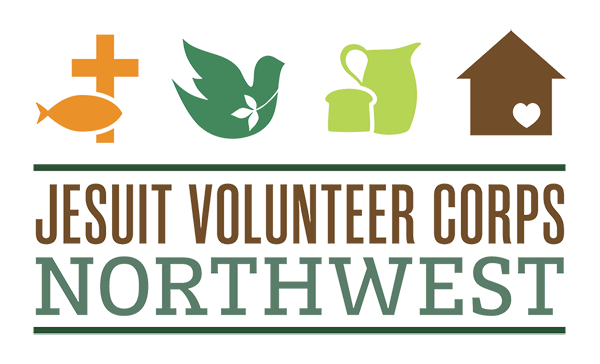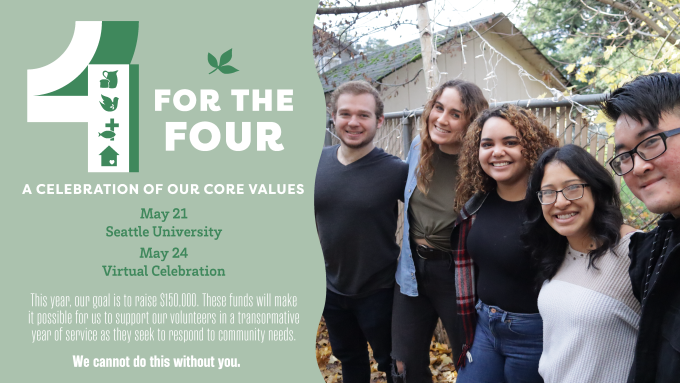During her time as a JVC Northwest AmeriCorps member, Lindsay Poston served as the Health Clinic Coordinator (Gresham, OR ’10-11) and Patient Navigator and Outreach Specialist (Portland, OR ’11-12) at Wallace Medical Concern. She is now a 2nd year medical student at the University of Chicago, Pritzker School of Medicine. Lindsay notes that she takes “every opportunity to continue serving and learning about those I came to love in JVC Northwest.” Whether by working on a Lakota Sioux reservation or exploring the impact of homelessness on patients in Chicago, Lindsay is turning her experience as an AmeriCorps member into a lifetime of service.
In September I spent two weeks in Peru, working with CerviCuzco, a women’s clinic that provides free pap smears, colposcopies, biopsies, and oncological surgery to the women of Cusco and the surrounding rural Andean communities. Despite the fact that cervical cancer is entirely preventable with adequate screening, it tragically remains a leading cause of death for Peruvian women. Founded by an American physician and run by Peruvian physicians and indigenous support staff, the clinic provides sustainable and culturally specific services to numerous Andean communities, while training American medical students in hopes of developing global physicians.
Some days were spent in the clinic in Cusco, screening urbanites and tending women who had traveled long distances for more complex procedures. Most days, however, were on the road. On rural campaigns, we would drive hours up into mountain villages to be warmly greeted by a coordinating community health worker . . . and every other woman from the village, lined up for a pap smear. We worked until we’d seen every woman who wished to be seen, and then, as our attending American physicians looked on in horror, we students would risk giardia and campylobacter (intestinal parasites and bacteria) for the luxury of table kinship, of sharing a meal with the grateful women we served before heading back to Cusco for the evening.
In the time I was there, our team screened over 300 women for breast and cervical cancer, identifying those who would require follow-up care for lumps and lesions. We were able to reassure countless frightened women who had watched a mother or sister die of cervical cancer, and for those we could not reassure, we were able to explain and support them through the next steps of arranging transportation to the city, providing further diagnostic procedures, and surgeries as needed.
Having worked in free clinics in the US, I thought I knew what it meant to deliver care in a resource-limited setting. But as I stood in the village square, setting up the camping tent and card-table that would be our clinic walls and exam bed, I realized this wasn’t Kansas anymore. When my wastefulness was censured for disposing of – rather than reusing—a bloody table cover, I realized just how resourced my free clinics had been. When I asked about the risk of transmitting blood-borne-pathogens like HIV and hepatitis, I learned that these are cultural assumptions I bring to the practice of medicine, that no one in these isolated communities had ever even been exposed to these viruses, and that we really didn’t have enough supplies to be throwing things away just because they have a spot of blood on them.
Although Spanish is the official language of Peru, the majority of rural communities—and many of the most impoverished urban dwellers – still speak Quechua, an indigenous Andean language. So, while I’d worked with diverse Latino immigrant populations in the US and tried my best to learn some Quechua phrases before going, this was a fresh and humbling experience with language barriers in doctor-patient communication. Even with interpreters, I found myself trying to explain the necessity of continuing care for a pre-cancerous lesion – only to discover that in Quechua, there is no word for cancer. At home, there are few weightier words I can say to a patient. In our culture, it stands for so much. Even when we know nothing of etiology or prognosis, it evokes fear, grief, and the uneasy sense that once that word is spoken, life will not be the same. In Peru, speaking to a woman about her diagnosis, the one word that should have carried all her heartbreak was not just weightless – it was non-existent.
I developed hard skills that will allow me to serve women in my local community and around the globe, I expanded my knowledge of Peruvian culture and language, and I was able to contribute to a sustainable movement addressing a serious need in these communities. In retrospect, however, I’d say the truest value arose from the intangibles and un-plannables. It was the things that were not there: a paucity of supplies, a conference interpreter who didn’t show up, a language with no word for cancer. It was challenging an American photographer who did not even ask my patient if he could take her picture, accepting hospitality (against medical advice), and seeing the challenges of founding and funding an international NGO. Above all, it was taking the time to hear individual’s stories, no matter how many pap smears still stood between me and lunch.





